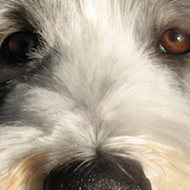Dogs aid paralysis study

Nineteen paraplegic dogs were recruited for the study.
Research by North Carolina State University involving paraplegic dogs has revealed that a one-size fits all approach is not ideal for treating spinal cord injuries and courses of treatment should instead be diverse.
The findings could lead to personalised treatments for spinal cord injuries, and hopefully better outcomes for canine and potentially human patients.
Led by Natasha Olby, professor of neurology at NC State University, the research team conducted a clinical trial involving the drug 4-AP and a derivative of the drug called t-butly.
4-AP has been tested on humans for spinal cord injury, and is currently used as a treatment for multiple sclerosis. T-butyl has not been tested clinically on humans. Both drugs work by helping damaged nerves transmit signals.
Nineteen paraplegic dogs were recruited for the study. All of the dogs had suffered similar spinal cord injuries, and had been injured long enough to rule out any hope of unaided recovery. A placebo and both drugs were administered to the dogs, each for a two-week block of randomly assigned time, first to determine whether the drugs were effective, and then to see whether or not there was a difference in efficacy between the two medications.
Professor Olby said: "The question quickly went from 'Do the drugs work?' to 'Why aren't they having similar effects across the board?'. And there are many possible factors to consider – some of the dogs may not have any axons left for the drug to act on, or it may depend upon how long they’ve been paralyzed or even whether or not they have a genetic predisposition to respond to this treatment.”
Professor Olby is now focussed on determining how best to identify patient populations that will respond best to the treatment.
She adds: “There is no doubt that either or both of these medications can have an amazing effect on the right patient – but now we have to do the work of finding out what conditions make a patient the right one. If we can do that, we may save both patients and owners a lot of unnecessary frustration.”
The study, “Potassium channel antagonists 4-aminopyridine and the t-butyl carbamate derivative of 4-aminopyridine improve hind limb function in chronically non-ambulatory dogs; a blinded, placebo-controlled trial,” is published in PLOS One.



 The Veterinary Medicines Directorate (VMD) is inviting applications from veterinary students to attend a one-week extramural studies (EMS) placement in July 2026.
The Veterinary Medicines Directorate (VMD) is inviting applications from veterinary students to attend a one-week extramural studies (EMS) placement in July 2026.